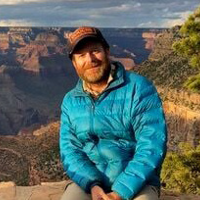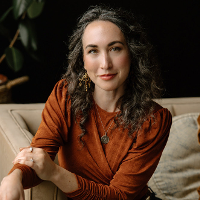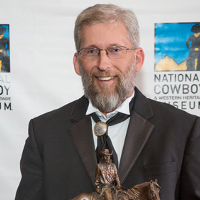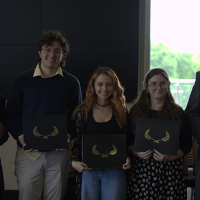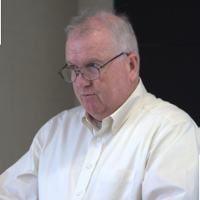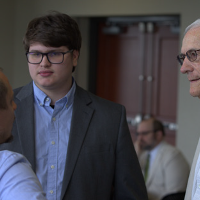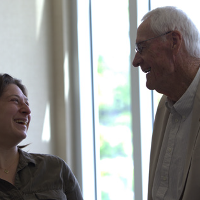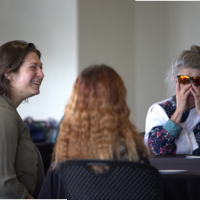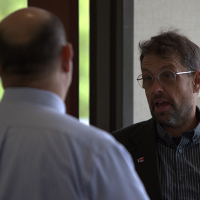From The Chair
Anybody who has been involved in critiquing somebody’s work has probably been advised to package it as a sandwich, with the criticism sandwiched between two good things. While I don’t usually incorporate this suggestion into my own practices – for example, I still use a red pen when grading – I’m willing to take it for a spin in this year’s message. For the good topping, the department is excited to welcome two new colleagues to the friendly confines of Fiske Hall. Christian Pettersen joins us as the new coordinator of the geography program. Dr. Pettersen, a graduate in geography from the University of Georgia, comes to us from Kenyon College. He is charged with revitalizing our geography program, which has been in abeyance since Craig Torbenson’s retirement. Dr. Haley Schroer is our new Latinx scholar. A graduate from the University of Texas at Austin, Dr. Schroer joins us from Texas Lutheran University and brings her expertise in Latinx and colonial Latin American history. I encourage you to introduce yourselves to our new colleagues and help make them feel welcome in Wichita.
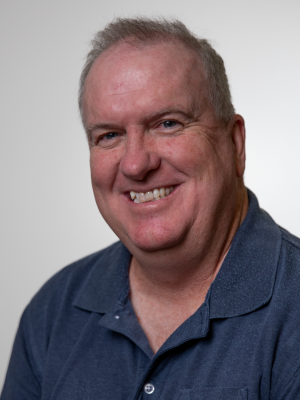
The middle portion of our sandwich is that Robert Weems is retiring at the end of the spring 2026 semester. Bad is a matter of perspective, I suppose, because while we will miss his good will, collegiality and the gravitas he has added to the department, we are glad for him as he enjoys his well-earned retirement from the academic grind. For the base of our chair’s message club, I am happy to announce the launching of the John Dreifort Scholarship/Fellowship in Modern Europe and Foreign Affairs. Named in honor of John Dreifort, the award will be given to a promising scholar studying modern Europe, foreign affairs or global history. We are pleased to be able to continue John’s teaching legacy for future generations through this fund. If you would like to contribute to this new student scholarship, please visit this link: Support the John Dreifort Scholarship/Fellowship in Modern Europe and Foreign Affairs.
A glance at the headlines or, for our younger alum, a gander at your social media feed, reveals a world that demands some historical perspective. We are indeed living in interesting times. In the History, Geography and Religion department, we believe that deep research and teaching provide the grounding for living in the world today, as it has been in the past and will be in the future. And we know that you believe that, too. To that end, we will continue to conduct our research, publish our analyses, present in formal and informal ways, and engage with the community while striving to maintain the high standards our predecessors have set. We appreciate all the support of our alumni and sincerely hope that our work has helped you with your success. Visitors are always welcome in Fiske Hall and we are always delighted to hear from our graduates, so feel free to drop us a line and let us know where your history degree has taken you.

GEORGE DEHNER
Chair
Department of History
Local and Community History Program
Local and Community History students and alums remain active in the community and as budding professionals. Some have pursued a traditional academic path, as with Dr. Ben Hruska, who is doing great things at the University of Texas, Rio Grande Valley. Others work in archives, already helping cultivate the next generation of professionals, such as Joshua Mackey at Oklahoma Baptist University. Several alums including Barb Myers, Bethany Kennedy, Erin LeBegue and Rhenee Swink now work at Wichita State University. Sadonia Lane brings her passion for history to the K-12 audience and has even taken a group of students on a trip to Europe. Matt Dwier brings his enthusiasm for education to the Museum of World Treasures while Logan Daughtery serves the Kansas Aviation Museum. Jillian Overstake Forsberg’s historical fiction novel, “The Rhino Keeper,” set the stage for a new novel, “The Porcelain Menagerie.” Ken Spurgeon launched his latest docudrama, “Sod and Stubble,” to a packed house at the Orpheum Theater. Derek Landwehr and Darbee Chard have both taken positions with the Kansas Historical Society, joining forces with alum Donna Rae Pearson! Landwehr has also been active on a host of other projects, from serving on the board of Old Cowtown Museum and working with a filmmaker documenting the story of the Holiday Inn Shooting of 1976. These are just a few examples of what our alums are up to.
As always, students in the program, working through the Society of Public Historians, have continued the tradition of adult education walking tours that attract sold-out crowds. This spring, a group went again up to Topeka to do research at the Kansas Historical Society. Other projects include the work of Sandra Hain, who is assisting HumanKind Ministries in tackling their institutional archives. In addition to supporting the undergraduate and graduate programs in the History Department, the program also ties to several certificate programs as well, including the Museum Studies Certificate Program and the Great Plains Studies Certificate. Those students are very much a part of the Local and Community History family!
Alumni News & Accolades
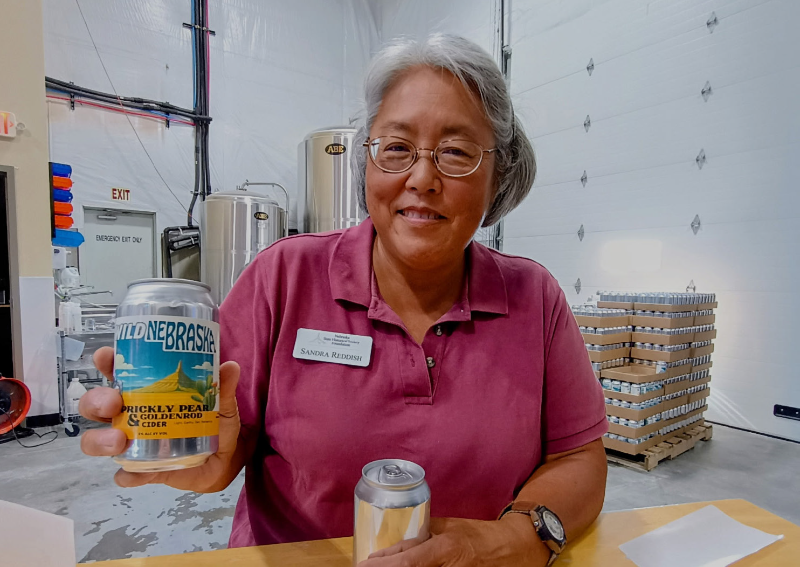
Alumna Sandra Reddish ’03, working for the Nebraska Historical Foundation, showcases a new cider, proceeds from which will go back to the organization. Reddish was proactive in partnering with Papa Moon Vineyards, makers of hard cider, wine and mead, to develop this product.
Darbee Chard ’25 recently began a position with the Kansas Historical Society as the Subgrants Coordinator for the Historic Preservation Office. She will oversee the grant application process for the Heritage Trust Fund, which provides restoration and preservation funding to properties already on the National Register of Historic Places or the Register of Historic Kansas Places. She will also help provide aid with the application process and assist grantees with maintaining their contracts once they are awarded. Chard credits the master’s program in the History Department with allowing her to start this job directly following graduation by providing the necessary training and practice. She particularly notes that the Local and Community History track set her up for various possibilities in the field through its courses, offering experience outside of a classroom setting through an abundance of networking and community engagement opportunities. The connections and education she received while in the program greatly facilitated launching her career so quickly after completing graduate school.
Though not yet an alumnus, Derek Landwehr ’25 was hired as the new traveling archivist for the Kansas Historical Society in September. His main duties include not only processing digital and physical collections but also acting as the liaison for the archives. Landwehr will perform outreach and educational seminars and presentations regarding the role of archives in the state, as well as laws surrounding the retention of public records. He is also one of four co-authors of “LGBTQ Wichita” with Dr. Jay Price, Brent Kennedy and Darbee Chard, which was published in June of 2025. He is currently working on securing funding for his next documentary.
Your Generosity At Work
Master’s candidate Allison Johnson wishes to acknowledge the donors who have greatly benefited her budding career. Receiving the Miner-Unrau Graduate Student Research Grant in fall 2023 funded a research trip to the University of Wisconsin at Madison to view several collections, including the Lyman C. Draper manuscripts, a key source concerning the homicidal Harpe brothers, central figures in her thesis. The grant also allowed a visit to Louisville, Kentucky, to utilize resources at the Filson Historical Society. As a bonus, she also travelled to Cane-in-Rock State Park in Illinois along the way, an area in which the Harpe brothers were known to have spent time.
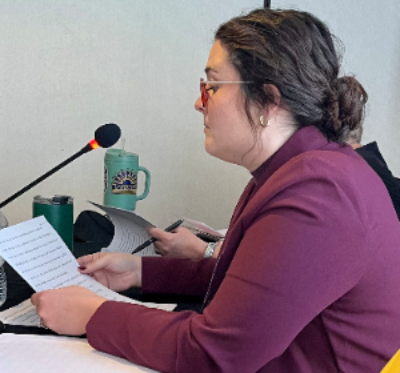
Donor-provided funds have also made it possible for Johnson to present her work at scholarly conferences. The Colonial Dames Fund for Graduate Students allowed her to travel to the Western Historical Association’s annual conference and present her work on the Harpes in the fall of 2024. In the spring of 2025, Johnson was awarded the Phi Alpha Theta Heaston Research Award, which allowed her to travel to the American Historical Association’s annual conference in New York City, and, as a bonus, to research other figures for her thesis at the New York Public Library. Another Phi Alpha Theta Heaston Research Award for the fall of 2025 will fund her attendance at the Western Historical Association’s annual conference in Albuquerque, New Mexico, to present her research on another central figure in her thesis, Mary Doherty.
Johnson says, “I am beyond honored to have been chosen to receive all of this funding. It allowed me to partake in opportunities that otherwise would have been financially untenable. Traveling, researching and presenting would have been a nearly insurmountable task without the funding bestowed upon me by the department, and I would have missed out on several pertinent opportunities in the academic sphere.”
Andrew Suriano, master’s candidate, is writing a thesis about American efforts to seize Florida prior to 1819 and took the opportunity to go on a research trip to Georgia and Florida this past summer, thanks to support from the Miner-Unrau travel grant from the History Department and the Phi Alpha Theta Heaston Research Award. This research trip marked a series of firsts: his first time flying in a plane, first time seeing the ocean, and first time visiting an archive. Navigating the Atlanta-Hartsfield airport, the world’s busiest airport, and traveling in a small 2013 Chevy Sonic proved humbling but educational. Working at the Archives of Georgia in Morrow, south of Atlanta, and the Bull Street Library in Savannah, Georgia, yielded significant research for his thesis. Suriano says, “Getting lost in Gainesville while searching for East Florida records at the P.K. Yonge/George Smathers Library was an interesting experience. The most important archive I visited, however, was in St. Augustine, which was also the prettiest city I’ve ever seen. The small collection held by the local historical society contained aftermath reports as well as an especially helpful curator.”
Want to support the History Department?
Contact Matt Fisher (Associate Director of Development - Liberal Arts and Sciences) at the WSU Foundation and Alumni Engagement
Faculty News
Laila Ballout
Professor Laila Ballout submitted her manuscript, “Arab American Politics, Human Rights, and U.S. Foreign Policy in the Middle East,” to Cambridge University Press, where it is currently under development for inclusion to the Cambridge Studies in U.S. Foreign Relations series.
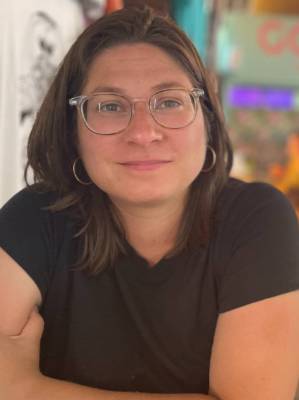
In June, she presented early work for her next project, examining Daniel Patrick Moynihan and International Human Rights Law in the post-Cold War era at the Society for Historians of American Foreign Relations. This November, she’ll present a selection from her manuscript at the Middle East Studies Association conference. Ballout continues to enjoy working with graduate students as the coordinator of the History Department’s Graduate Program and with undergraduates as the advisor to the International Studies program. In the classroom, she continues to enjoy teaching the second half of the U.S. history survey course and is delighted to be teaching the graduate American Seminar for the first time in the fall 2025 semester. Preparing for this class over the summer, she reread Carl Sagan’s 1995 work, “Demon Haunted World: Science as a Candle in the Dark.” His work continues to be resonant and thoughtful, if also firmly a product of the end of the twentieth century. It was fascinating to start the semester discussing selections from it with students.
George Dehner
As Dehner begins his second year as the department chair (but who’s counting?), he has come to appreciate why his predecessors laughed when he was elected.

George is currently shopping his manuscript on Legionnaires' Disease around to academic publishing houses and is at work revising an article, “Swine Flu, Legionnaires' Disease and the CDC: Public Health Challenges in 1976,” for resubmission to an academic journal. He is also co-director of HealthHum: The Academic Center for Biomedical and Health Humanities and is presently at work drafting a textbook for use in an introductory course with several colleagues. Dehner has also begun preliminary research on an article on National Hotel Disease, which he anticipates will be a journal article. He will also debut a new Global Public Health course in the spring of 2026, an early version of which he workshopped in his spring 2025 LifeLong Learning course.
George and Jodi have replaced the chaos of their three boys – Brendan, Patrick and Sean, who have established their own places – with the chaos of two and a half dogs. (Brendan drops off his dog, Rip, when he goes to work.) Gunner, Trixie and Rip create quite a commotion in the Dehner household and serve as a fun counterpoint to the world of work.
Cheryl Golden
Cheryl Golden joined the teaching faculty in the history department at Wichita State University in 2024.
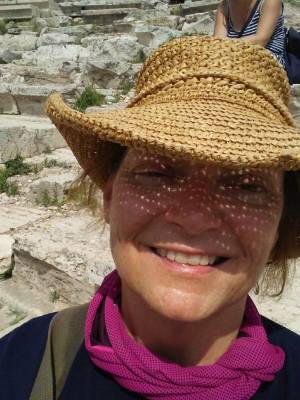
A graduate of the University of Houston and the University of North Carolina, Chapel Hill, where she graduated with her doctorate, she developed research on Hellenistic political and military leadership in Western Asia for her master’s degree, and legal and political history in the Roman Republic for her PhD. She comes to WSU by way of Newman University. She has served on local museum boards, is a past president of the Kansas Association of Historians and currently serves as the treasurer for the Association of Ancient Historians.
Golden has presented papers on the Roman military’s use of chemical weapons, funerary memorials for Roman gladiators and published journal articles on political exiles in Greece, the origins of the Atlantis myth and the use of geography in the work of the Greek historian Thucydides. She is currently working with the WSU Humanities faculty to develop a book on the humanities and health care. She is also engaged with a group of ancient historians and E.J. Brill to complete a book on Roman military initiatives in the eastern empire. She continues to work with Routledge to finish a book on the role of poisons in Rome.
Rannfrid Lasine Thelle
Rannfrid I. Lasine Thelle directs the Religion Program housed here in the History Department. In the past year, the Religion Program offered a new course, a regular course rotation, including “Archaeology and the Bible,” for which the students created posters that were displayed in the library.
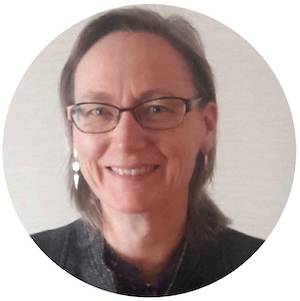
Rannfrid Lasine Thelle
On the research front, she finalized “Bible and Babel: The Impact of Mesopotamia on Biblical Studies 1872-1924.” The book should appear in 2026. Thelle also published two co-edited volumes in collaboration with colleagues in the field of Assyriology and participated in regional and national conferences. Over the summer, she began immersing herself in a new long-term project within the field of heritage management and presentations of material culture remains from the past, with a focus on religious and ideological rationales for preservation and destruction.
With the threats against higher education looming ever larger and more sinister, she has endeavored to bring up those challenges as they relate to her field and to teaching by organizing a Teach-in on Higher Education and the Present Political Situation last spring.
Jeff Hayton
Jeff Hayton has had an unusual, but definitely not unwelcome, year. In fall 2024, he taught his usual classes on European history and rock’n’roll. But in spring 2025, thanks to his recent publishing record, he was awarded time off from the classroom to concentrate on writing. In May, a volume he edited with Scott Harrison and Katharine White called “Socialist Subjectivities: Queering East Germany under Honecker” was published by the University of Michigan Press.
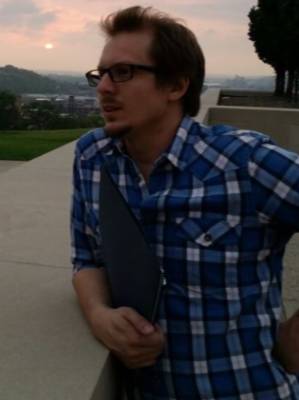
Additionally, an article on two East German mountaineering expeditions to North Korea in the 1980s appeared that same month in German Studies Review and was featured by Johns Hopkins Press. Later this year, another article, this one on an East German climbing expedition to Mongolia in 1966 and the possibilities and limits of socialist interactionism, will appear in the Jahrbuch für Historische Kommunismusforschung.
The important news is that having the spring off from teaching, as well as the fall 2025 semester, has allowed him to start writing his new book on the history of climbing in East Germany, “Socialist Summits: Mountaineering in the German Democratic Republic.” So far, he has written four chapters and is hopeful that he can draft the entire manuscript this year. However, halfway through, his intended page count has now doubled. Nevertheless, being able to write without distractions is a pleasure, and, if all goes well, the book will appear much quicker than his others. When he is not writing, he makes sure that Silvia and Mago are well attended to, although it is unclear whether they appreciate the extra attention or not.
Haley Schroer
Haley Schroer is an assistant professor of Latin American and Latinx History at Wichita State University. She earned her PhD from the University of Texas at Austin in 2023, where she specialized in the intersection of race and material culture in colonial Latin America.
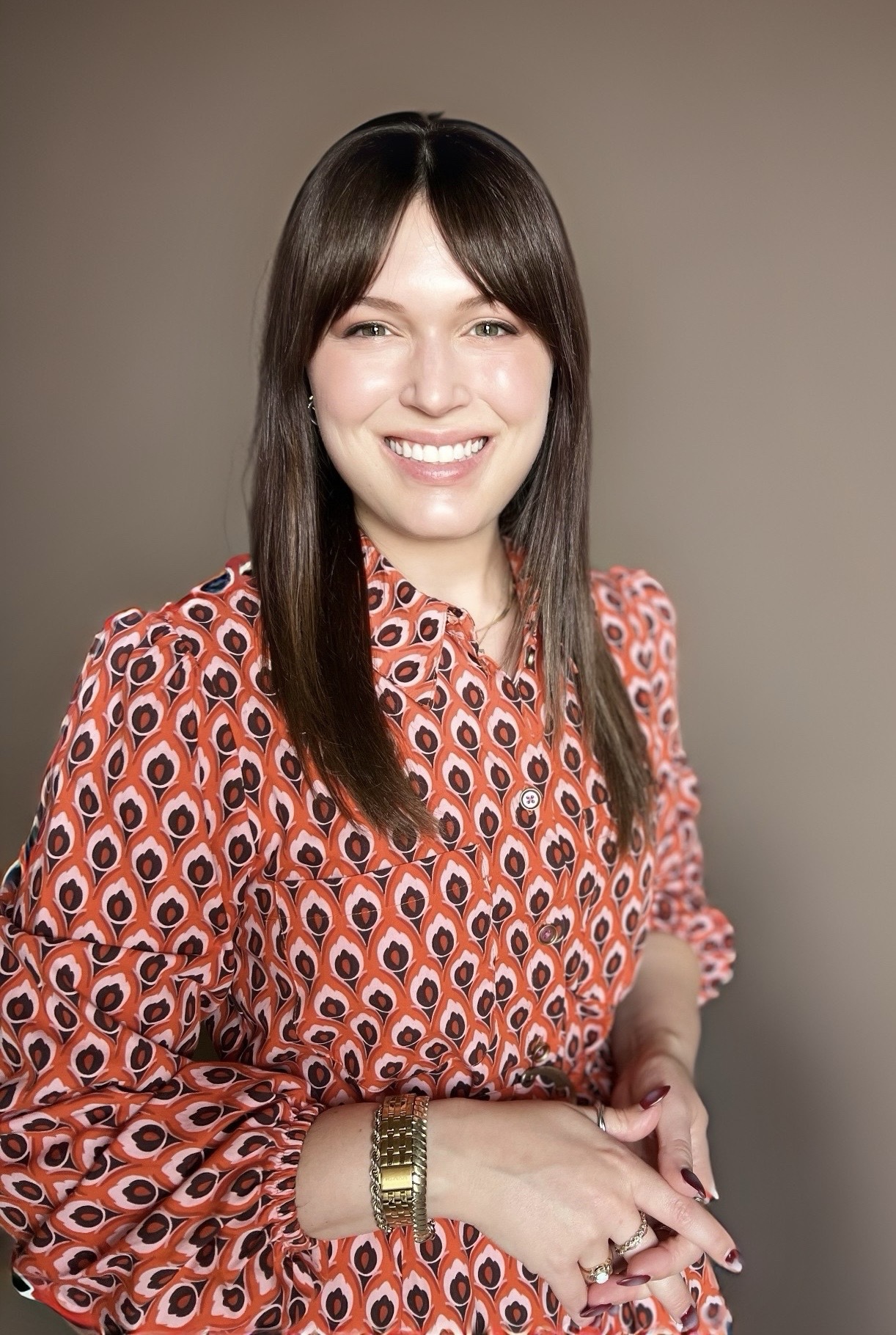
Her book project, “Sartorial Subversions: Appearance, Identity, and Sumptuary Legislation in the Spanish Empire,” explores the tensions between sumptuary laws – statutes that barred select groups from wearing certain garments or using socially charged items – and the ways in which marginalized populations crafted their own socio-racial identities.
Her research has received support from numerous organizations, such as the American Historical Association, P.E.O. International, the Fulbright Program, the Social Science Research Council International Dissertation Research Fellowship Program, and the Conference on Latin American History. She has published both domestically and internationally in the Colonial Latin American Review, History Today, the Spanish academic press, SILEX, and the University of North Carolina Press.
In addition to her academic work, Schroer has experience working in private collections, with a focus in Texana, U.S.-Mexico borderlands, and American rare books and manuscripts. Her teaching interests include Latin American history, material culture and the interconnected histories of the Americas.
Christian Pettersen
Christian Pettersen joined the department in fall 2025 as Assistant Professor of Geography and Geography Program Coordinator. Prior to coming to Wichita State University, he was a Visiting Assistant Professor of International Studies and History at Kenyon College.
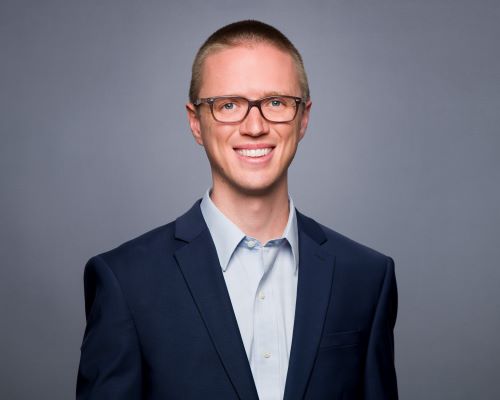
In 2023, Dr. Pettersen earned his Ph.D. in Geography from the University of Georgia. His dissertation The Empire of Law: Hybrid Justice and the International Commission Against Impunity in Guatemala (CICIG), was partially funded by the Fulbright-Hays DDRA fellowship. In addition to teaching standard courses including Geography 125, Principles of Human Geography, and Geography 210, Introduction to World Geography, he is currently developing new courses based on his research expertise in Latin America and international human rights law.
His current work, examines how specific historical cases from Central America can demonstrate how law, politics, and space are foundational to contemporary geographies of human rights. He is working on two articles: one examining how spatial struggle is imbedded in the global fight against impunity, the other on how transnational adoptions during war can contribute to how we understand the geographies of violence and repair. His publications have appeared in Oxford Bibliographies in Human Geography, The Professional Geographer, and in the popular source NACLA.
Jay Price
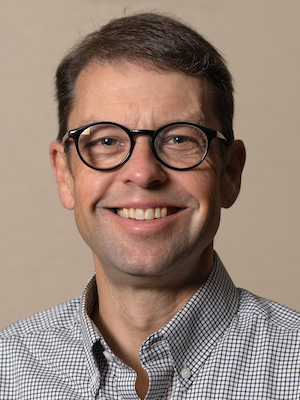
For the past several years, the life of Governor (and U.S. Chief Archivist) John Carlin has been at the heart of Jay Price’s research activities. The manuscript is currently in process and has been made all the richer thanks to the interviews and connections with the people who have worked with Carlin and, naturally, with Carlin himself.
2025 also saw the release of a new Arcadia book, “LGBTQ Wichita,” a photo history of that community that quite literally “came out” during Pride Month.
Other research projects have included working with a visiting professor from Northern Ireland, Dr. Steven Donnelly, to research Kansas Masonic history, as well as with Dr. Robert Weems and Dr. Sue Abdinnour to continue the study of ethnic entrepreneurship in Wichita.
A member of the Kansas commission for the 250th anniversary of the signing of the Declaration of Independence, Price has been involved in a number of projects related to the “Semiquincentennial,” complete with a Kansas 250th mascot: SemiQuinn the Bison.
Robert Owens
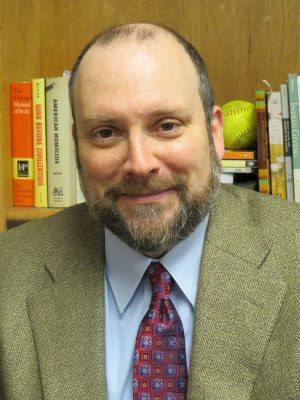
Robert M. Owens taught courses on Colonial America, the Early Republic and the undergraduate research seminar. He also takes over as the editor for Clio’s Correspondence.
Thanks to the generosity of our donors, he was able to continue researching his project about death and remembrance in early America with short research trips to the Library of Congress, Ohio, North Carolina, Tennessee, Florida, Georgia and Texas. He served on a roundtable – “Violence in the Early Republic” – for the Society of the Early Republic’s meeting in Providence, Rhode Island, in July, and contributed a chapter to Routledge Press’s forthcoming collection, “The American Dream.”
Owens will also serve on the editorial board for the University Press of Kansas.
Robin Henry
During the 2024-25 academic year, Dr. Henry maintained her active role within the History Department, while also overseeing the transition of the Department of Women’s, Ethnicity and Intersectional Studies (WEIS) into a program, now housed within the English Department. She currently serves as its first director.
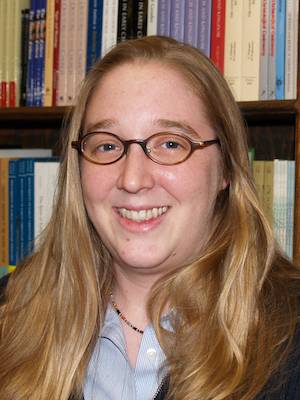
She continued contributing to the KMUW commentary series, Past and Present, and served as a member of the Board of Trustees for the Wichita-Sedgwick County Historical Museum. Henry is currently expanding her recently submitted journal article, “Years of the Living Dead: Zombie Laws, Legal Dormancy, and the Contingent Rights of Sexual Minorities,” into a book-length manuscript. Additionally, a chapter on Ben Lindsey and sex education for an edited collection and essays for WSU art faculty Jennifer Ray’s photography that explore masculinity, gun culture and the American West, “Shouting Fire,” are both in stages of publication.
Finally, she continues to work on a book-length manuscript on Benjamin Barr Lindsay, incorporating research from the previous year to write two new chapters. Henry continues to integrate her research and teaching activities. In October 2024, she chaired a panel at the Western Historical Association (WHA) annual conference, featuring papers on gender and sexuality frontiers in U.S. history written by her fall 2023 master’s seminar students.
For the 2025 WHA, she organized a panel centered on Ray’s photographic project and is currently serving a three-year term on the Standing Committee for the Coalition for Western Women’s History.
Robert Weems, Jr.
Besides his teaching duties, Professor Weems has been involved in a variety of activities in 2025. On the research front, he, along with colleagues Jay Price of the History Department and Sue Abdinnour of the Barton School of Business, published an article in Great Plains Quarterly entitled “Doing Business in Plains Sight: Researching Comparative Entrepreneurship in Wichita, Kansas.” This publication discusses the findings of a survey of nonwhite entrepreneurs in Wichita, conducted by Weems, Price and Abdinnour between 2017 and 2019.
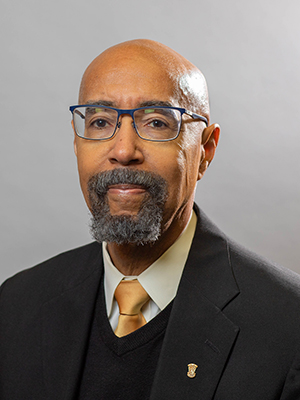
Also in 2025, the Weems, Price and Abdinnour research team is developing an article manuscript discussing their 2022-24 project, “Wichita Nonwhite Business Owners Tell Their Stories” and Weems’ earlier (2012-14) “Wichita African American Business History Project.” The working title for this new, future, publication is “Preserving the Stories of Nonwhite Entrepreneurship in America’s Heartland: Recent Oral History Projects in Wichita, Kansas.”
In terms of presentations, on April 17, 2025, Weems served as a panelist for a History Department-sponsored “Teach-in” which discussed the impact of the current political climate on higher education. This was part of a National Day of Action, where similar activities took place on campuses across the country. On August 29, 2025, Weems gave a presentation entitled “How I Earned My Doctorate” to WSU students enrolled in the McNair Scholars Program. Created to honor Dr. Ronald McNair, one of the victims of the January 28, 1986, Space Shuttle Challenger explosion, the McNair Program has, over the years, helped increase the number of doctorate holders from underrepresented groups.
Finally, at the History Department’s May 9, 2025, faculty meeting, Weems announced his intent to retire at the end of the 2025-2026 academic year. Among other things, he noted the collegiality within the department and the various community engagement opportunities he has had in Wichita.
History Department Lecture
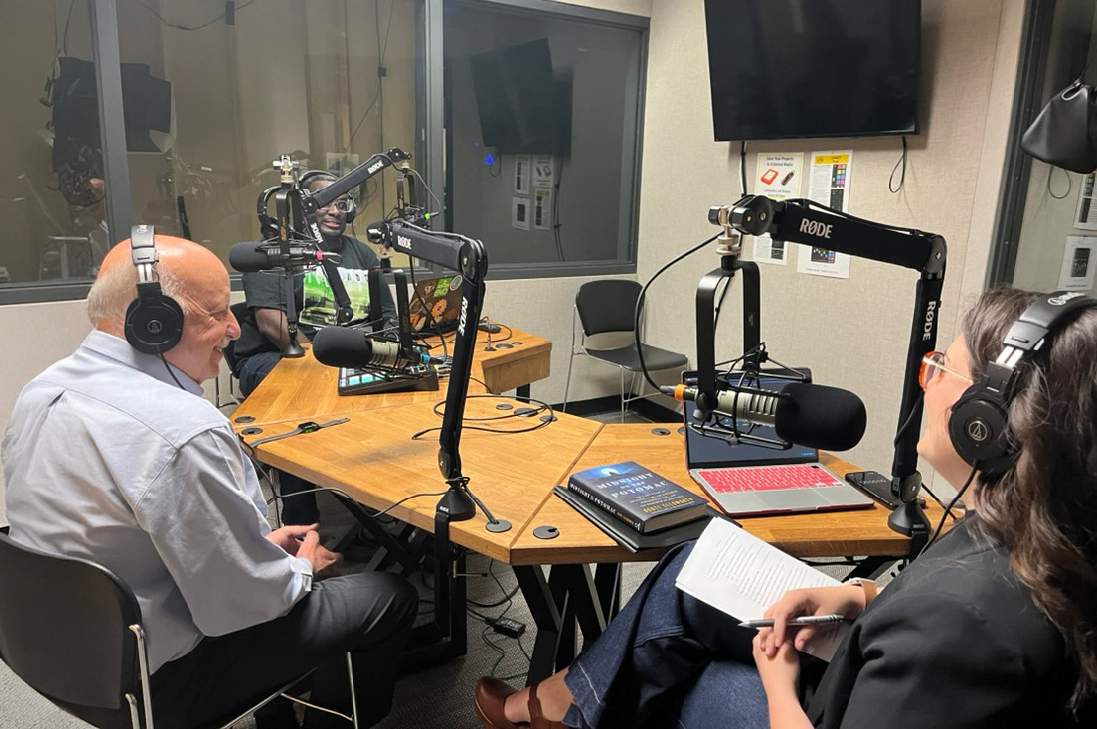
In fall 2025, the History Department Lecture Series featured Dr. Scott Ellsworth, who presented on his recently published book, Midnight on the Potomac: The Last Year of the Civil War, The Lincoln Assassination, and the Rebirth of America (2025). During his visit, Dr. Ellsworth also engaged with students and faculty, including recording an episode for the podcast, “Maybe Water, Maybe Vodka,” hosted by WSU students Eugene Potts and Allison Johnson.
To learn more about the History Department Lecture Series
Contact Robin Henry (Associate Professor, Director of Women's Ethnicity & Intersectional Studies) at the History Department
2024 - 25 Scholarships and Awards
In 2024 - 25, we were able to provide $21,000 in funding for scholarships, awards and research funds.
Paper Awards
Undergraduate
- Douglass Bendell Award in Research and Writing - Ramith Umange, "The Battle of the Somme"
Phi Alpha Theta
- Kind Shepherd – Allison Johnson and Derek Landwehr, "Public Health in Kansas"
Graduate
- Fiske Hall Seminar Award – Katherine Messenger, "Wealth, Want, and Waste"
Graduate
- Fiske Hall Non-Seminar Award - Niklas Erwin, "Atomic Anxieties"
Undergraduate Scholarships
- Lee and Helen Kamen Scholarship – Cole Schneider
- Bill and Donna Ard Endowed Scholarship – Cassity Sutton
- John Edward “Jed” Hurley Jr. Award – Allison Waldt
- Dr. Henry and Minnie Onsgard Scholarship – Rhys Dick
- Suellentrop Family – Tessa McBee
- Decker-Kansas Society of DAR Award – Zachary Howard
- Russell “Jiggs” Nelson Scholarship – David Moya
- Marie Graham Memorial Scholarship – Jesse Piña
- Virginia Mae Gardner Scholarship –
- Fall 2024 , Austin Clarke
- Spring 2025, Michah Williams
Graduate Fellowships
- Anthony and Dana Gythiel Endowed Scholarship – Eric Blonigen
- John Rydjord Award – Allison Johnson
Research Student Support
- Miner/Unrau Graduate Research Award –
- Fall 2024, Derek Landwehr
- Spring 2025, Andrew Suriano
- William and Ruth Heaston PAT, Gamma Rho Chapter Student Support Fellowship –
- Spring 2025, Andrew Suriano
- William and Ruth Heaston PAT, Gamma Rho Chapter Research Award –
- Fall 2024, Allison Johnson
- Spring 2025, Andrew Suriano
On behalf of the History Department, thank you to our generous friends and alumni, without whom these deserving students would not have the same support.
The History Department is delighted to offer The Honorable Scott W. Stucky History Scholarship, a new scholarship generously donated by Scott W. Stucky. Judge Stucky graduated from Pretty Prairie Rural High School in Kansas in 1966 and earned his bachelor’s degree in history in 1970 from Wichita State University. Upon graduation, he received a commission as a second lieutenant, U.S. Air Force Reserve, through ROTC. During his time at WSU, he was in Student Activities Council, served as SGA president in 1970, was a Senior Honor Man and a member of Sigma Phi Epsilon.
He earned his Juris Doctor from Harvard Law School in 1973. In addition to his undergraduate and legal degrees, Stucky holds master’s degrees in history from Trinity University and in international law from the George Washington University Law School.
Stucky served as an Air Force judge advocate on active duty from 1973 to 1978. He was legislative counsel and principal legislative counsel to the Department of the Air Force from 1983 to 1996, where he worked on such legislation as the Goldwater-Nichols Act and legislative responses to the First Gulf War. From 1996 to 2006, he served as general counsel and minority counsel to the Senate Committee on Armed Services. He was appointed to the Court by President George W. Bush on December 20, 2006. Stucky is a retired colonel in the Air Force Reserve and was awarded the Legion of Merit for outstanding service upon his retirement.
The department is pleased to recognize Maleah Evans and Olivia Davis as the inaugural recipients of this award.


